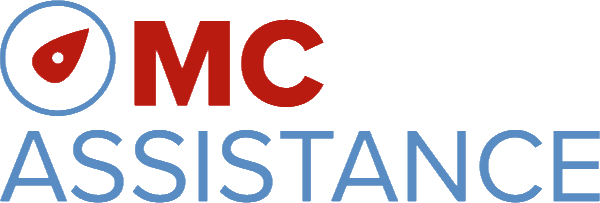April 9, 2021
Myeloma Canada has reviewed the most recent statements issued by the National Advisory Committee on Immunization (NACI)
Based on the limitations of Canada’s expected vaccine supply, the NACI has released recommendations for the optimization of vaccine rollout which have specific implications for immunocompromised individuals, including multiple myeloma patients. In their April 7th statement, the NACI recommended an extended interval of up to four months between administration of the COVID-19 vaccine’s first and second doses. In their view, by offering a first dose to all eligible populations before second doses are made available, a greater number of individuals will, more quickly, acquire some level of protection against COVID-19.
Yet this becomes problematic because, there currently only exists research confirming the mRNA vaccines’ efficacy following a dose-interval of three months— not four. The NACI’s issued guidance for the use of COVID-19 vaccines, runs contrary to the manufactures’ recommendation; this is especially of concern for groups originally excluded from vaccination clinical trials and thus already lacking efficacy data— like cancer patients. Similarly, in the context of new, more virulent, SARS-CoV-2 variants against which, vaccines remain largely untested, the available data do not provide sufficient evidence to validate an extended vaccine-dose-interval for the entire Canadian population.
In contrast to previous releases from the NACI, this statement does acknowledge the existence of preliminary research into the effects of an extended vaccine-dose interval on specific populations, such as immunocompromised individuals, seniors, and cancer patients— groups already extremely vulnerable to COVID-19 infection. An UK-based study (still awaiting peer-review) showed cancer patients’ immune response to the first dose of the Pfizer-BioTech COVID-19 vaccine to be much weaker (39%) than the immune response recorded for healthy individuals (97%), and even more so for patients with hematological cancers (13%), which leaves these patients still largely unprotected from SARS-CoV-2 infection. This study further indicates that a second dose of vaccine, when administered at the intended 21-day (3 week) period makes a significant improvement upon immunocompromised and cancer patients’ immune responses. However, without booster some patients’ level of protection, when tested at 5 weeks, was noted to have declined. This highlights the importance of a timely second dose for such patients, who will remain insufficiently protected from infection at least until receipt of their second dose.
This aforementioned research had a very small observed population, and its results have yet to be reproduced on a larger scale, which may be a reason the NACI does not seem to consider it a significant factor in determining the blanket application of their recommended dose-interval extension. More encouragingly, the Ontario government appears to have recognized the implications of departing from a verifiably effective three-week dose interval for immunocompromised individuals. In response action to restore the intended second-dose timeline for some such patients[1] has been taken.
Myeloma Canada will continue to support the creation of similar and further change across-Canada, by lobbying provincial and federal governments to allow immunocompromised, and cancer patients to receive their second COVID-19 vaccination dose, on the manufacturer’s recommended schedule. As ever our organization is committed to advocating on behalf of our community, specifically to ensure stakeholder awareness of emerging research into the efficacy of COVID-19 vaccinations for immunocompromised individuals.
[1] Including recipients of solid organ transplants; recipients of hematopoietic stem cell transplants; people with malignant hematological conditions undergoing active treatment; and people with non-hematological malignant solid tumours undergoing active treatment, where active treatment includes chemotherapy, targeted therapies, immunotherapy, and excluding individuals receiving solely hormonal therapy or radiation therapy.
Sources Consulted
Monin-Aldama, L. et al. (2021). Interim results of the safety and immune-efficacy of I versus 2 doses of COVID-19 vaccine BNT162b2 for cancer patients in the context of the UK vaccine priority guidelines. MedRxiv. Available at: https://www.medrxiv.org/content/10.1101/2021.03.17.21253131v1 (Accessed April 8, 2021)
National Advisory Committee on Immunization (2021). EXTENDED DOSE INTERVALS FOR COVID-19 VACCINES TO OPTIMIZE EARLY VACCINE ROLLOUT AND POPULATION PROTECTION IN CANADA IN THE CONTEXT OF LIMITED VACCINE SUPPLY, An Advisory Committee Statement. (Accessed April 8, 2021)
National Advisory Committee on Immunization (2021). SUMMARY OF EXTENDED DOSE INTERVALS STATEMENT OF APRIL 7, 2021. Overview of Update (Accessed April 8, 2021)



